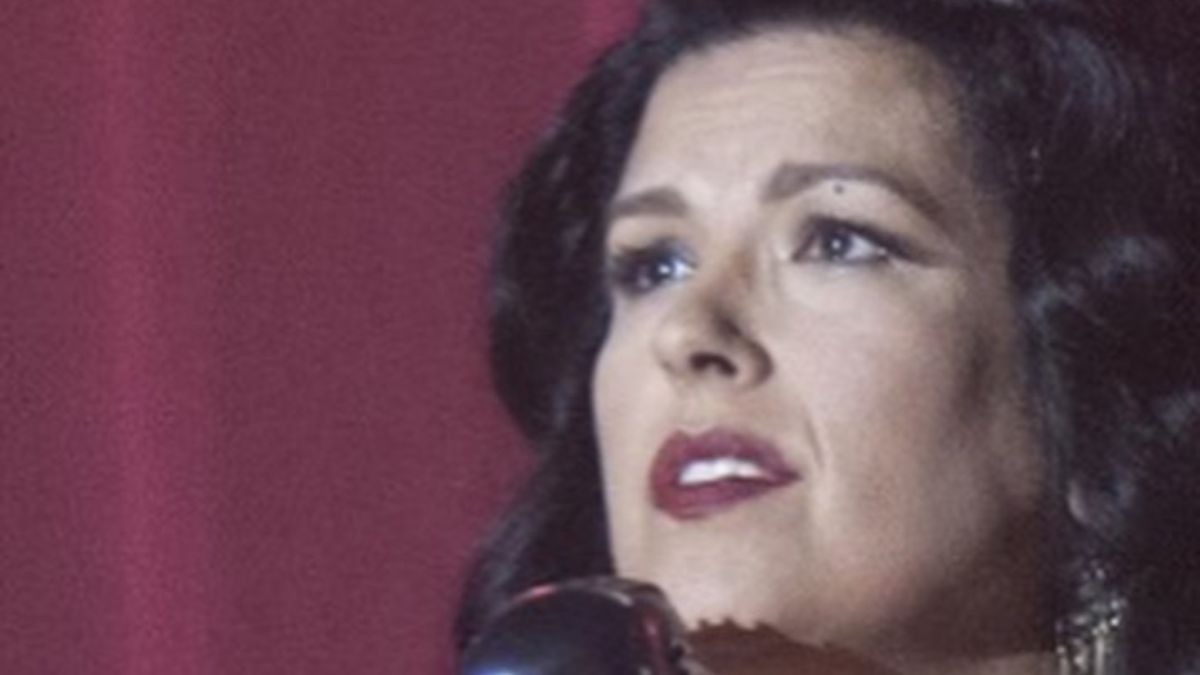New York: Have you ever watched a movie scene that left you breathless—not because of what you saw, but because of what you felt? A moment so fragile, so raw, that it bypassed logic and went straight for your soul? That’s what Rebekah Del Rio gave the world in Mulholland Drive. A woman in a black dress walks onstage at Club Silencio. She opens her mouth. And suddenly, reality splits.
Her rendition of “Llorando”—a Spanish cover of Roy Orbison’s “Crying”—wasn’t just a musical interlude. It was a cinematic rupture. A grief so elegant, so exact, it made you forget where you were. No flashbacks, no fanfare, just a voice and two silent women in the audience slowly breaking apart.
On June 23, 2025, that voice left us. Rebekah Del Rio passed away at 57. And with her went one of cinema’s most haunting ghosts—one who didn’t need lines to steal the scene, only a song.
Also Read: He Walked Away From Fame: Bobby Sherman’s Quiet Life After Teen Stardom
Why “Llorando” in Mulholland Drive Feels Like a Dream Breaking
If you’ve seen Mulholland Drive, you remember the Club Silencio scene. Not because you were told to, but because your body remembers it. The way Del Rio sang “Llorando” live—no lip-sync, no retakes—wasn’t just brave. It was devastating.
It comes at a pivotal moment in the film when dreams unravel and reality reveals itself to be more painful than illusion. Del Rio collapses mid-song, but the voice continues. It’s a cinematic sleight of hand that turns sound into sorrow and illusion into heartbreak.
You don’t need to understand Spanish to feel it. That’s the kind of grief she summoned—a universal one.
Who Was Rebekah Del Rio Beyond That Scene?
Though the world met her in 2001’s Mulholland Drive, Rebekah Del Rio had been shaping her artistic voice long before. A trained vocalist from California, she released her debut album Nobody’s Angel in 1994. Her genre? Somewhere between soft rock, Latin jazz, and operatic sorrow.
She went on to contribute music to Sin City, Southland Tales, Man on Fire, and other emotionally intense films. But to call her a soundtrack singer is to miss the point. She didn’t just add emotion—she was the emotion.
David Lynch’s Silent Muse: Their Creative Bond
It was David Lynch who discovered her version of “Llorando” in the mid-’90s. Legend has it, he recorded her singing secretly and kept that recording close until he could build a scene around it. That scene became Club Silencio.
Their bond didn’t end there. Del Rio returned in Twin Peaks: The Return in 2017 to perform “No Stars,” a track co-written with Lynch and his longtime sound designer John Neff. That performance, too, was eerie, tender, and bone-deep.
She wasn’t a background artist in his films—she was a portal.
What We Know About Her Passing at 57
Rebekah Del Rio was found unresponsive in her Los Angeles home on June 23, 2025. She was 57. While an official cause of death has not yet been released, family and fans have shared tributes online reflecting on her warmth, spirituality, and artistic integrity.
Her nephew shared a heartfelt message about one of their last joyful encounters, calling her “radiant, proud, and full of purpose.” It’s a poignant contrast to the silence that now follows.
Fans React: “She Made the Screen Cry”
As soon as the news broke, social media lit up with tributes—not from just cinephiles, but from musicians, artists, and everyday fans. One Redditor wrote:
“I didn’t even know her name the first time. But that scene wrecked me. And now I finally know who to thank.”
On Twitter/X, another said:
“She didn’t just perform. She turned film into feeling. RIP to a legend of silence and sound.”
The outpouring shows that while Del Rio wasn’t a household name, she was a household memory.
Why This Scene Still Hurts to Watch, Decades Later
Some film moments fade. Others become artifacts. But Del Rio’s “Llorando” sits somewhere stranger: it’s a feeling you can revisit, but never quite explain.
Maybe that’s why the loss stings so much. She wasn’t a megastar. She wasn’t in every scene. But when she was, she carved out a new kind of space—a sacred, melancholic hush in the middle of a surreal storm.
And now, that hush is real. Permanent.
Where to Revisit Her Magic
- Rewatch Mulholland Drive, especially the Club Silencio scene—ideally alone, late at night.
- Stream her album Nobody’s Angel or the “Llorando” recording on loop.
- Catch her appearance in Twin Peaks: The Return, Episode 10.
- Search YouTube for live performances—some are grainy, all are unforgettable.







